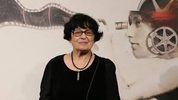Kira Muratova People

Muratova's films underwent a great deal of censorship in the Soviet Union,yet still Muratova managed to emerge as one of the leading figures in contemporary Russian cinema and was able to build a very successful film career from 1960s on- wards. Muratova spent much of her artistic career in Odessa, creating most of herfilms at Odessa Film Studios. It was only during Perestroyka that Muratova received wide public recognition and first awards. In 1988, the International Women's Film Festival Créteil (France) showed a first retrospective of her works.Her film Among Grey Stones was screened in the Un Certain Regard section at the 1988 Cannes Film Festival. In 1990, her film Asthenic Syndrome won the Jury Grand Prix at the Berlinale. In 1994, she was awarded the Leopard of Honour for her life oeuvre at The Locarno International Film Festival (Switzerland) and in 2000, shewas given the Andrzej Wajda Freedom Award. In 1997, her film Three Stories was en- tered into the 47th Berlin International Film Festival. Her 2002 film Chekhov's Motifs was entered into the 24th Moscow International Film Festival. Her film The Tunerwasshown at the Venice Film Festival in 2004. Her films received the Russian Nika prize in 1991, 1995, 2005, 2007, 2009 and 2013. In 2005, a retrospective was shown at the Lincoln Center in New York City. In 2013, a full retrospective of her films was shown at the International Film Festival Rotterdam.